For anyone involved in podcasting at Oxford, we recommend these beginner courses run by IT Services:
- 'Podcasting: An introduction' - technical advice on podcast recording and hosting
- 'Audio: Recording the spoken word' - technical advice focused on recording voice
- 'Digital Media: 5 ways to get started with podcasting' - how educational podcasts fit into the new media landscape
Check availability and book via the COSY Training search.
Additionally, it is worth reading our Podcasting FAQ help section, which provides a good description of what podcasting involves and how podcasts function on the Internet. It also describes case studies of podcasts published on University of Oxford Podcasts and provides good podcasting links in case you wish to find more information.



